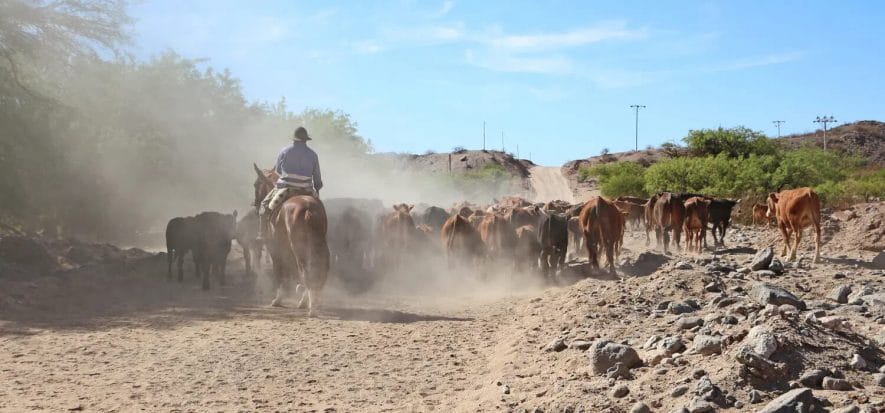Operators of Argentina’s meat industry have sent a letter to the government, demanding the removal of the exports’ block. The Casa Rosada introduced the measure in mid-May, with the goal of reducing the prices of animal protein on the local marketplace. The block was only supposed to last one month, but after 6 weeks not only did the measure not work, but prices even continued to climb. Even so, the measure was extended.
Meat exports blocked
On June 24th, 34 associations of livestock farmers and Argentina’s slaughterhouses have written a joint letter to Argentina’s government. Producers highlight their role to maintain the balance in the country: “115 kg of meat per capita per year” are needed to satisfy a market that “together with the USA and Australia”, is among the markets “with the highest consumption of meat in the world”. The livestock chain, claim associations, has the merit of bringing “more than 3.5 billion USD” of foreign currency in the country’s vaults.
The demand
“We confirm our availability to share the necessary know-how to write the most competitive livestock plan in history – wrote Argentina’s producers -. That’s why it’s imperative to remove all types of restrictions that damage, in a significant manner, the segment’s operators. This block puts the sustainability, food security and country’s brand at risk. Actions such as these significantly damage the minimum trust that foreign consumers require. That’s why we ask the president to immediately eliminate any sort of restriction present on exports”.
Intervention
Argentina’s government decided to block meat exports for one month in the middle of the month of May. The decision was taken to manage the continuous price increments. With this block, the government was hoping to protect the internal market and contain the increases. That being said, reported elpais.com, not only was the objective not reached, but the cost rather incremented even more: by 4.4%. Even so, the government decided to not remove the block, bur rather it announced its extension till the end of the year, if prices don’t get lower.
Read also:










